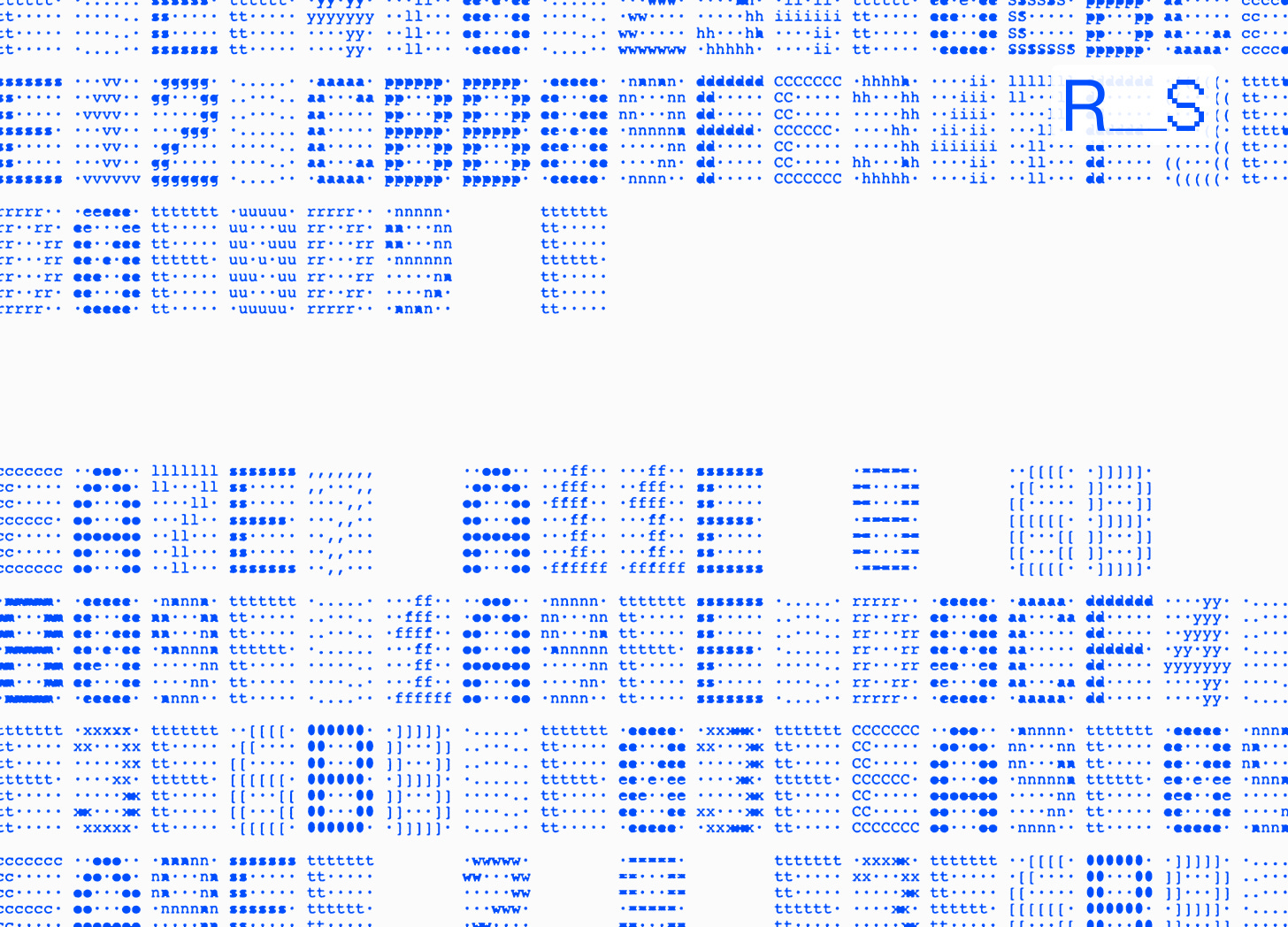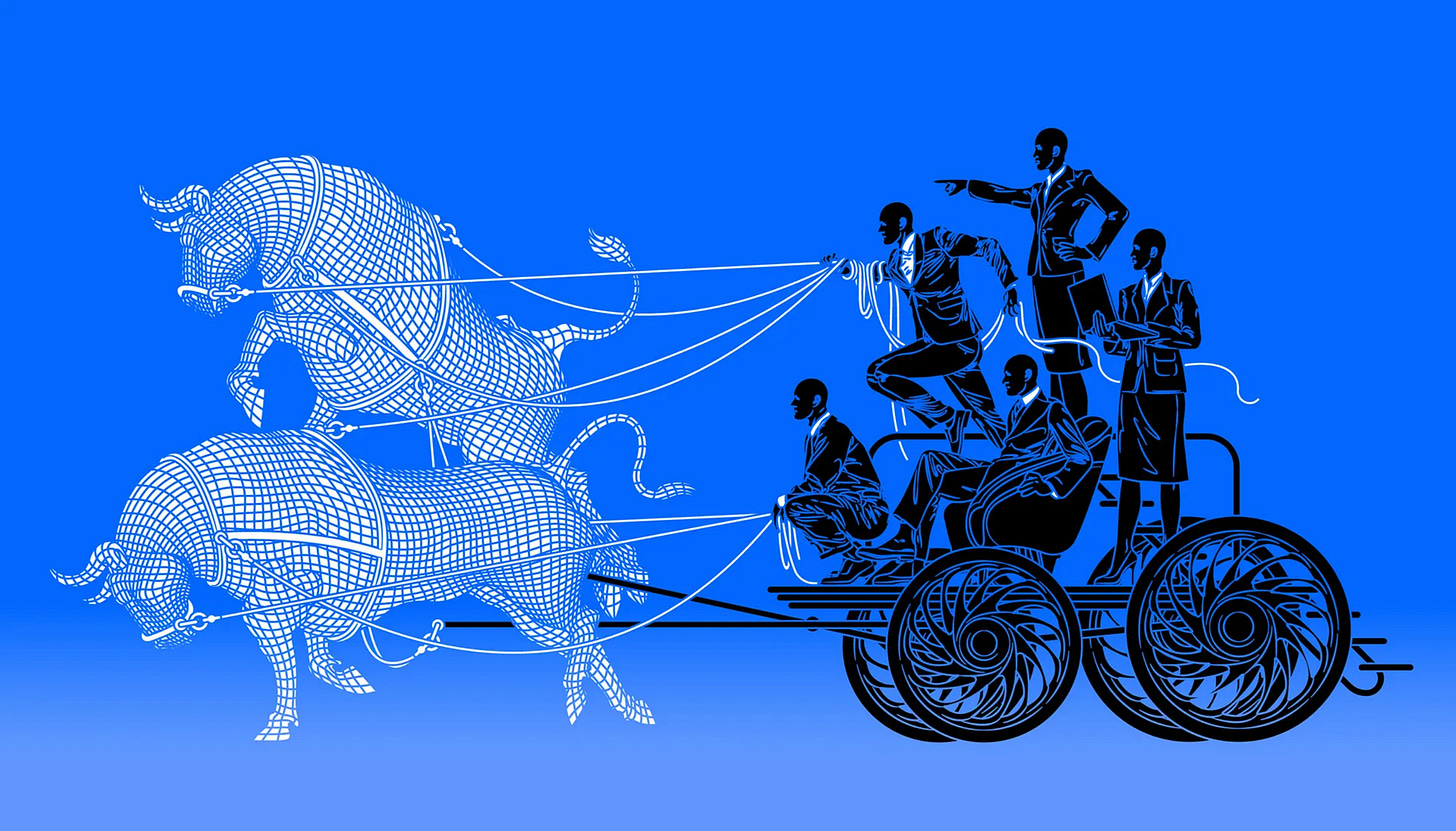Critical Readings in AI: The Bigger Picture
A new series focused on AI literacy outside the hype-doom binary. For the first installment, Reality Studies looks at questions of labor in the context of generative AI.
Generative AI is a subject that has prompted renewed talk of the Singularity, the supposed moment when an “artificial superintelligence” explodes past human capability, displacing us as the dominant species on Earth.
There are very real concerns associated with the rise of publicly accessible generative tools, but these have to do with the ways they will extend, exacerbate, and accelerate existing systemic problems. As I wrote in my recent piece on the “Creative Singularity”:
[M]any of the zealous proclamations from prominent figures in the field feel divorced from reality. Furthermore, they bypass less extreme but more applicable lessons from the past that must be reiterated in the face of hype, which tends to erase guiding insights.
I empathize with the fact that the subject feels overwhelming, and these doomsday visions play into the Frankensteinian “original sin” of sci-fi: that through our hubris we create something we cannot control, and thus spells our doom. But the framing of AI as an apocalyptic entity that will overthrow humanity is unproductive at a time when literacy is critical for developing practical solutions and frameworks.
What follows is a new series focused on helping develop informed, critical approaches to AI. Each installment synthesizes resources that have helped me clarify my own position and thoughts on what’s at stake, as well as situate them within the bigger picture. I want to say from the outset that this series will include information and works I both agree and disagree with; they’re here because they provide a frame on the subject that I think is useful to understand, not because I intend to endorse anything or anyone outright.
For the first installment, we take a look at the labor questions that are emerging as a result of generative engines. It’s a big, thorny subject, and one that needs a clear context established amid a lot of noise.
Starting broad: how exactly will generative tools be used to extend and accelerate the existing labor paradigm? And what problems will be replicated or intensified as a result? In the following essay, Ted Chiang argues that generative AI will be used to consolidate power among the wealthy at the expense of laborers by offsetting decision-making and accountability, just as management consulting firms did over the past few decades:
Will A.I. Become the New McKinsey?
As it’s currently imagined, the technology promises to concentrate wealth and disempower workers. Is an alternative possible?
Ted Chiang
Is there a way for A.I. to do something other than sharpen the knife blade of capitalism? Just to be clear, when I refer to capitalism, I'm not talking about the exchange of goods or services for prices determined by a market, which is a property of many economic systems. When I refer to capitalism, I'm talking about a specific relationship between capital and labor, in which private individuals who have money are able to profit off the effort of others. So, in the context of this discussion, whenever I criticize capitalism, I'm not criticizing the idea of selling things; I'm criticizing the idea that people who have lots of money get to wield power over people who actually work. And, more specifically, I'm criticizing the ever-growing concentration of wealth among an ever-smaller number of people, which may or may not be an intrinsic property of capitalism but which absolutely characterizes capitalism as it is practiced today.
Full article here.
It’s also important to rewind a bit and understand the labor context in which these tools were created, which followed existing lines of exploitation under global capitalism. This piece also makes clear why “old school” labor solidarity and organizing will be critical in ensuring human wellbeing throughout the transition toward deeper automation:





